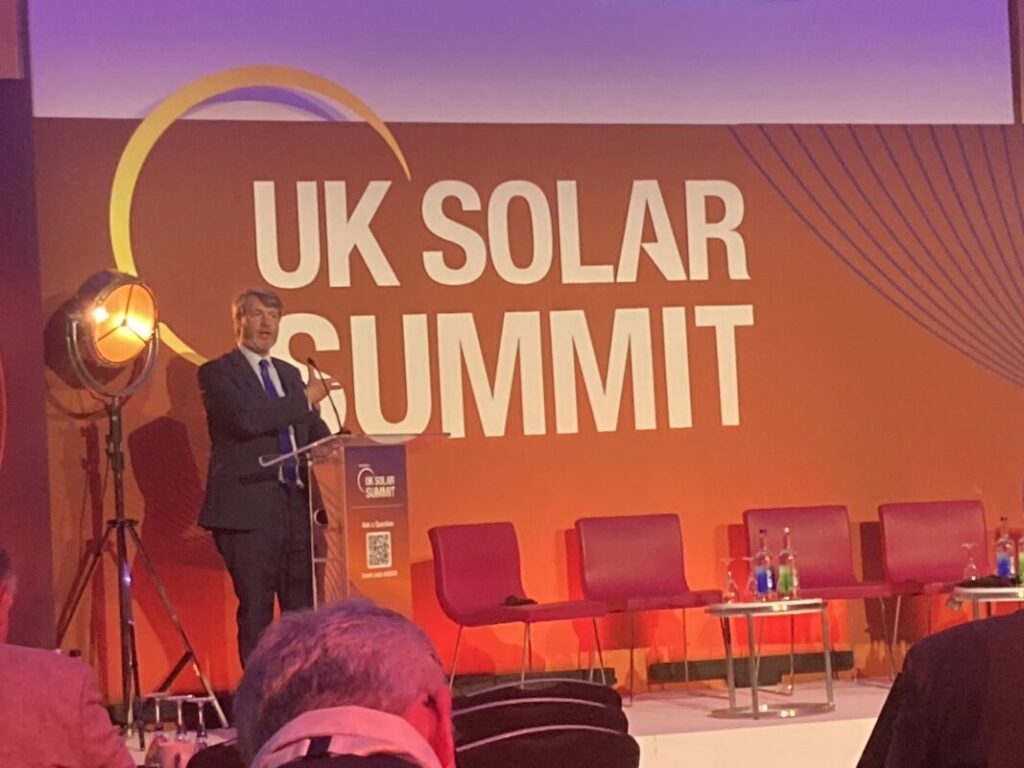
“We cannot will progress to happen”, said Rt Hon Chris Skidmore on day two of the UK Solar Summit. He identified that over the summer of last year we saw a shift “in tone, if not in policy” from the government.
For Skidmore, the net zero rollback “began a course for the government of moving away from a trajectory that we’ve been on, for well over a decade, having a cross party consensus that the energy transition was here to stay”.
“Regardless of who is in government, it will be under their stewardship that we would need to see carbon dioxide emissions fall; CO2 knows no political colours.”
When he resigned – as a result of the Tory party’s departure from that consensus – he committed to continuing to “champion the net zero cause, to champion the opportunity that the energy transition brings.”
He said: “I still retain my own belief in markets and economies and that nothing will ever happen unless the voice of business is involved.”
Solar rollout in the UK has been exponential. Skidmore pointed out that if the country is going to retain its position globally and achieve a net zero grid, “we’ve got to keep running to stand still”.
“When we look at the reality of what is happening around the UK, the reality that I took forward to the net zero review, is that Westminster and Whitehall are behind the curve. And we have plenty of businesses, plenty of individuals, plenty of conservatives all recognise the economic case for solar.”
The period running up to the general election is a moment to reflect for the solar industry. Skidmore said: “We have an opportunity now in the next 30 days to make the case for solar.”
“While we are in this strange world of not having any members of parliament in place, and while we are having to wait, use this opportunity to mobilise. Solar, above all, is the answer but not every politician knows that.”
Plotting a sustainable pathway to deployment is crucial, particularly in the face of Labour’s newly set goal of 50GW of solar by 2030.
“The further and faster we can go is fantastic, but you can’t over promise and under deliver – that’s the worst thing that can happen as part of the energy transition.”
Skidmore has set up the Mission Zero coalition, which will publish reports on how each of the 10 missions set out in the Net Zero Review can be taken forward.
One of the recommendations in the net zero review was to have a land use strategy that would clearly set out what needs to be built and where, “slaying” the myth that solar farms are going to take over agricultural land.
“You can speak to the farmers who recognize the economic opportunity for diversification. This is the new agricultural economy as well as an energy economy.”
Advocating a pushback against nimbyism, Skidmore pointed out that polling has shown people who live close to a solar farm are more supportive of solar farms than the population at large.
“As is the case with so much of the necessary transition, as is the case with so many technologies that we’ve been historically in a transition, whether electricity, whether the advent of the petrol car: you have to fight, and you have to win.”

